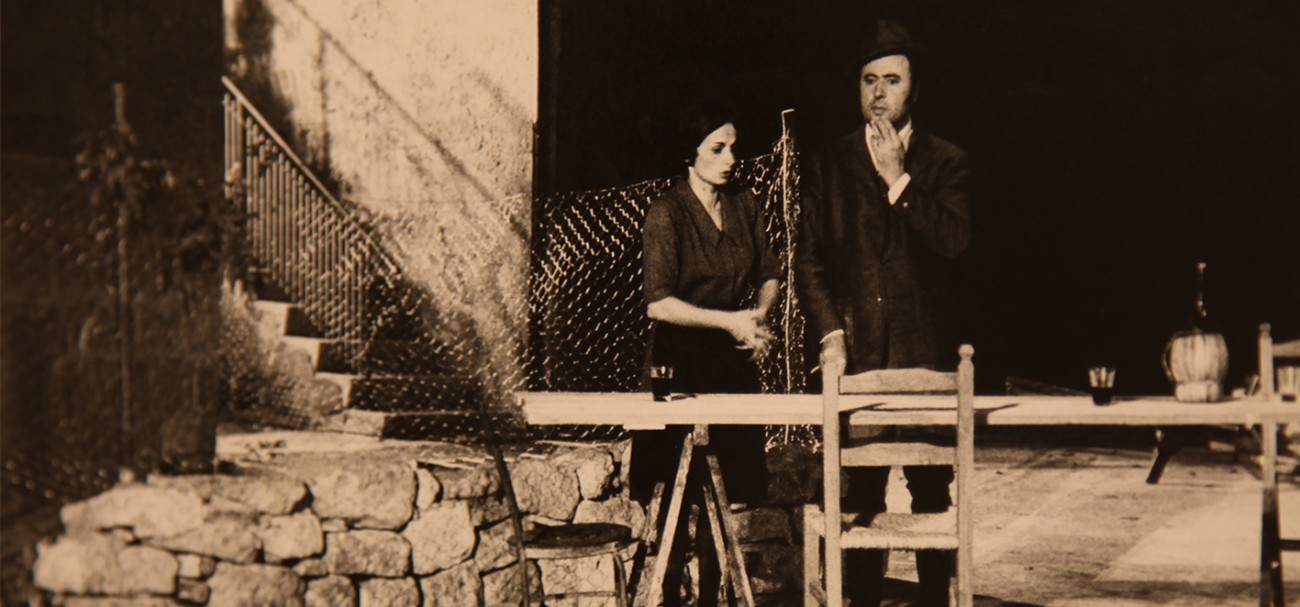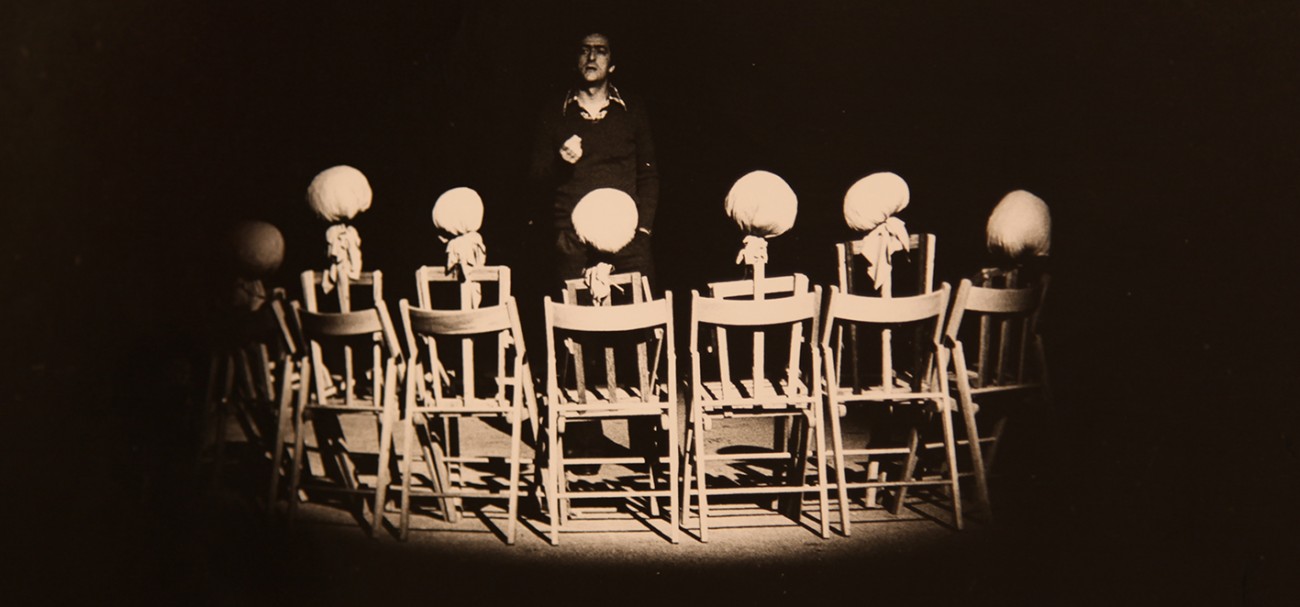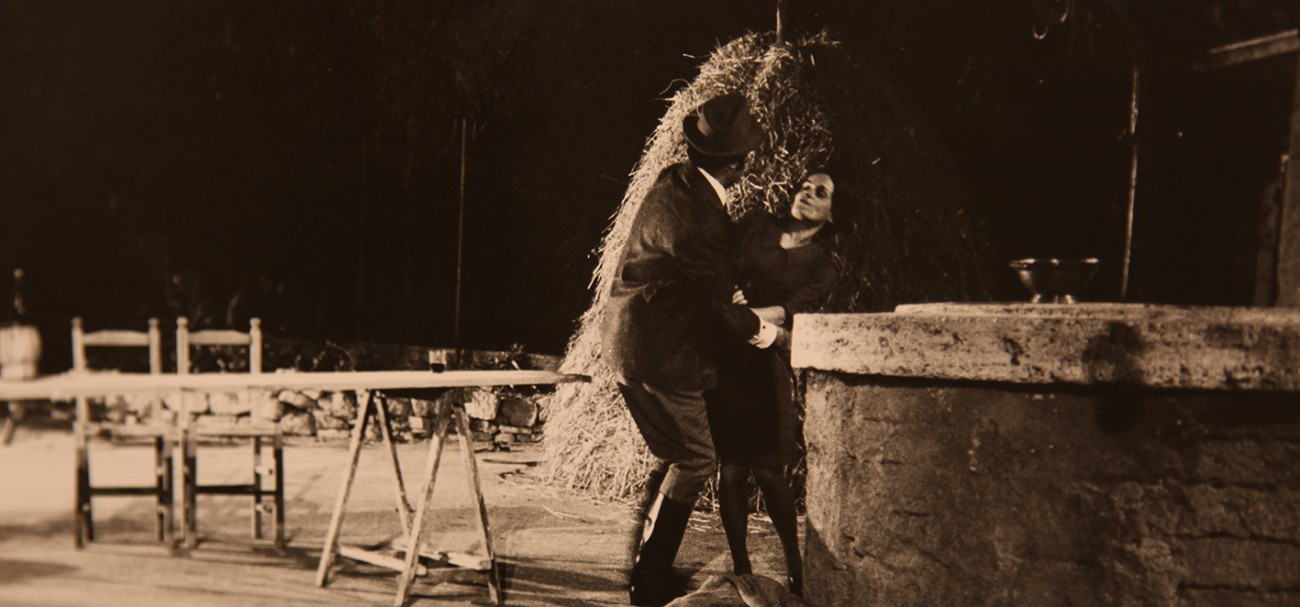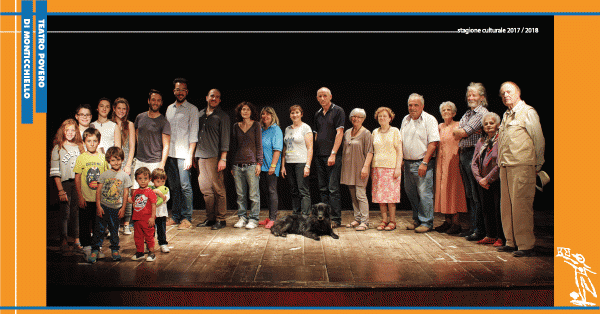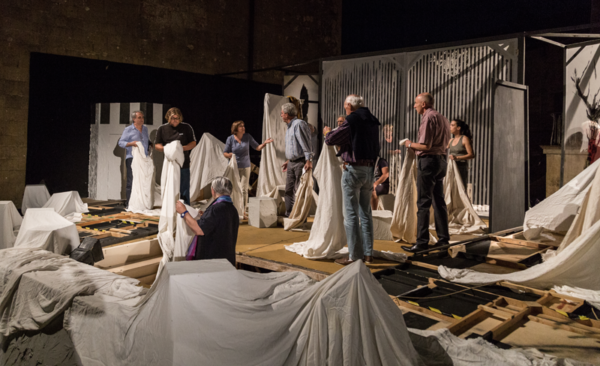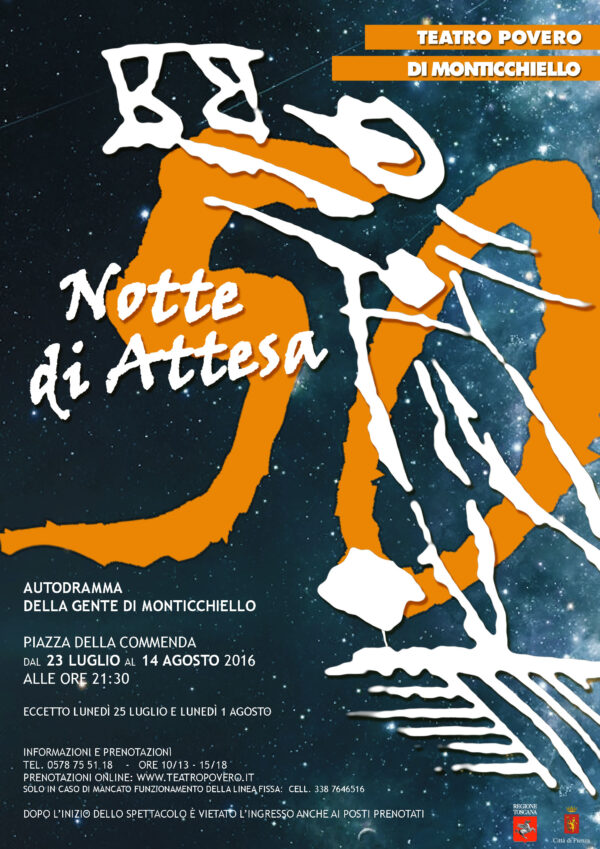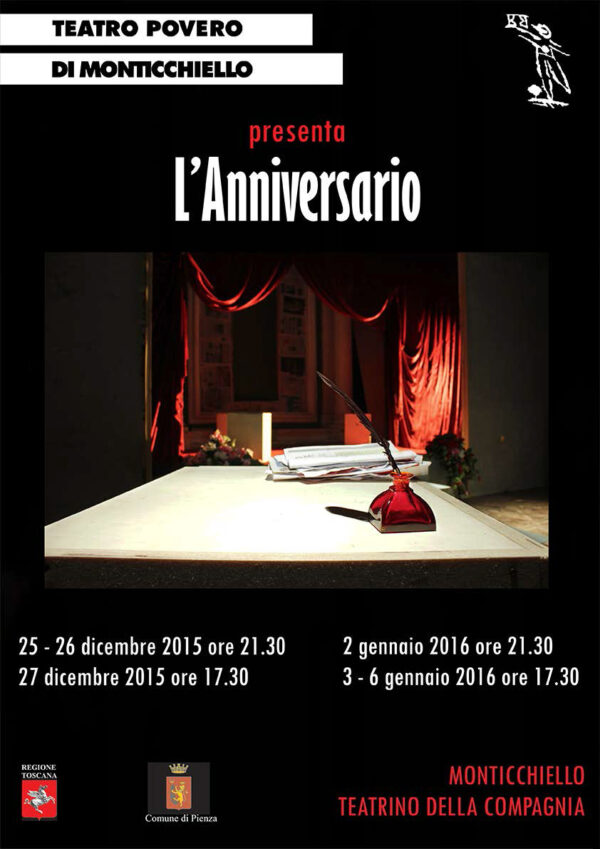The dominant theme of this production was the crisis of peasant families, in the context of the larger crisis of agriculture in Italy and especially in Tuscany. The stories dramatised addressed the depopulation of the countryside, urbanization, and the massive social changes which had taken place in the previous twenty years. It was this play that identified in a definitive way what became a fundamental point of reference for the Teatro Povero’s productions: the peasant world, which was now disappearing but still vividly remembered, and the rich cultural heritage which it left behind.
The first act dealt with an episode from the eighteenth century, reconstructed from archives and from local memory: the Count Borghesi attempted to bring about a concentration and rationalization of his estates, to the disadvantage of small-scale landowners. A conflict arose, carrying major social implications with which more recent generations could still identify.
The second act showed a peasant family in the 1930s, a time when—even if the sharecropping system seemed to be fully stabilized—resentments were beginning to show themselves from before the era of fascism. There was also a representation of marriage customs and ceremonies, stage-managed by the local go-between who was a well-known figure in the Tuscan peasant world.
Finally in the third act we saw the same family in the 1950s, at a time of transformation and social collapse: a new society and a new economy were bringing the sharecropping system to and end, and with it fracturing the old-style nuclear family. Former peasants were leaving en masse to work in local industry.
A final open debate turned attention to contemporary times, and concluded with an invitation to return to the land in search of regeneration and a balanced existence.

